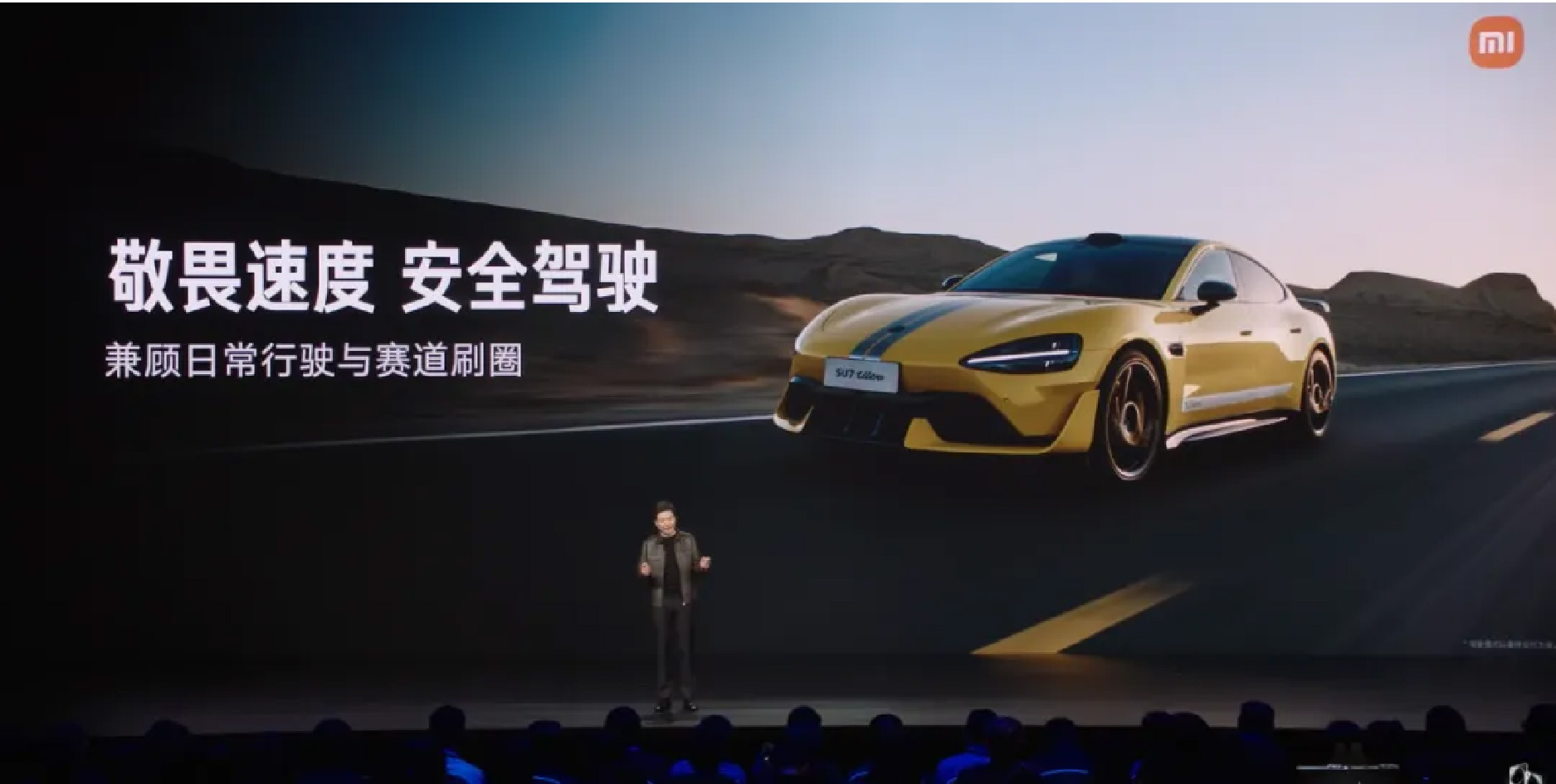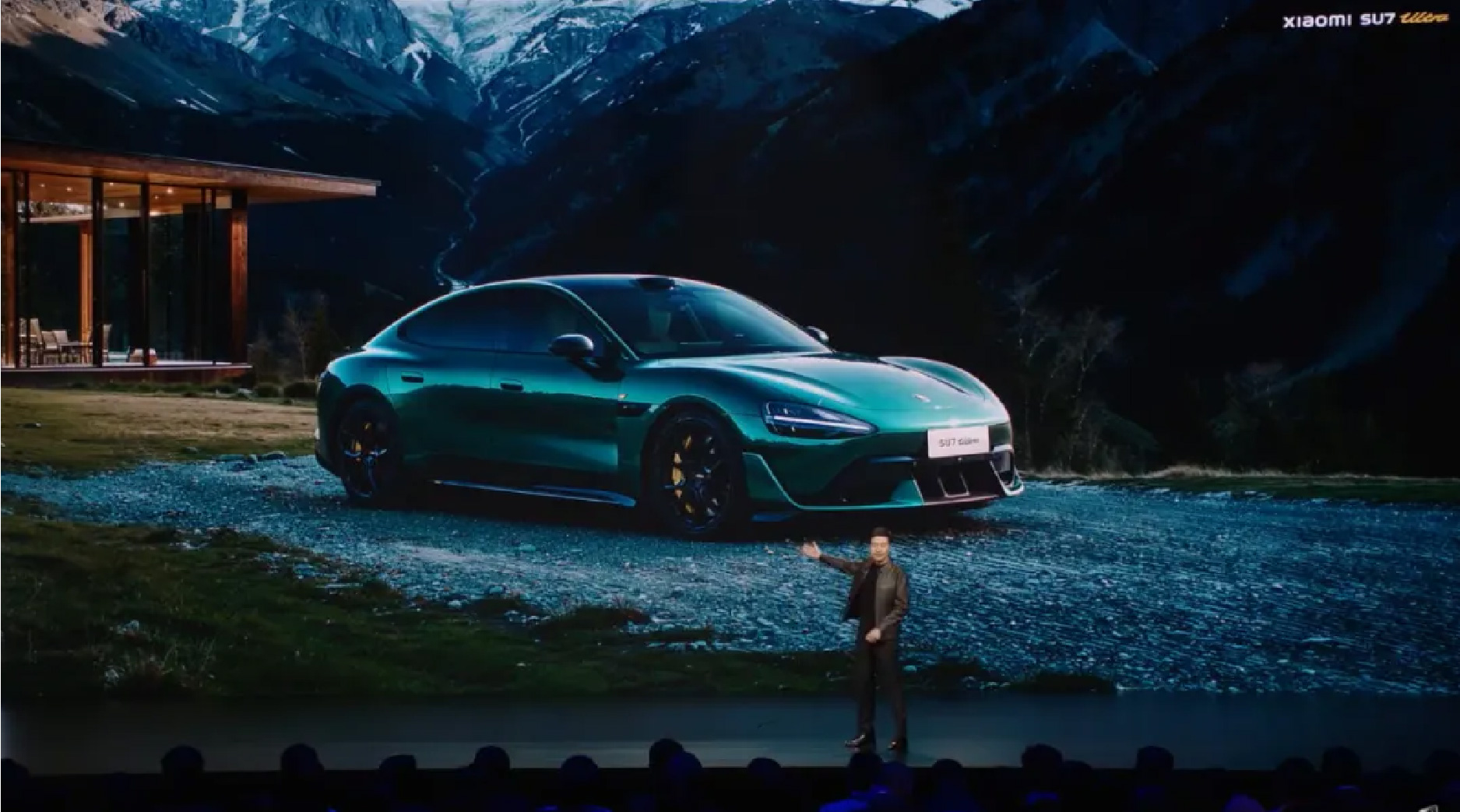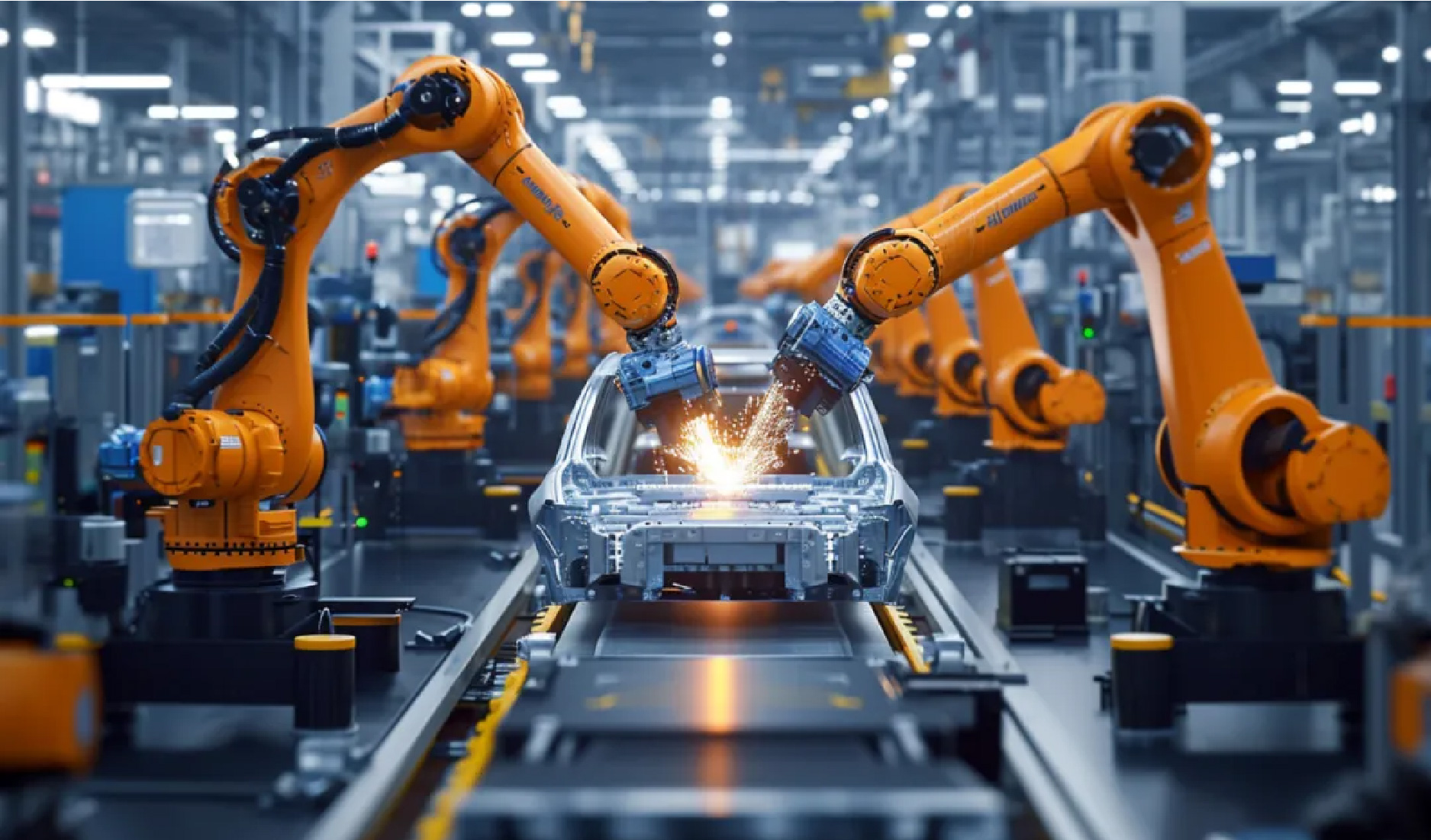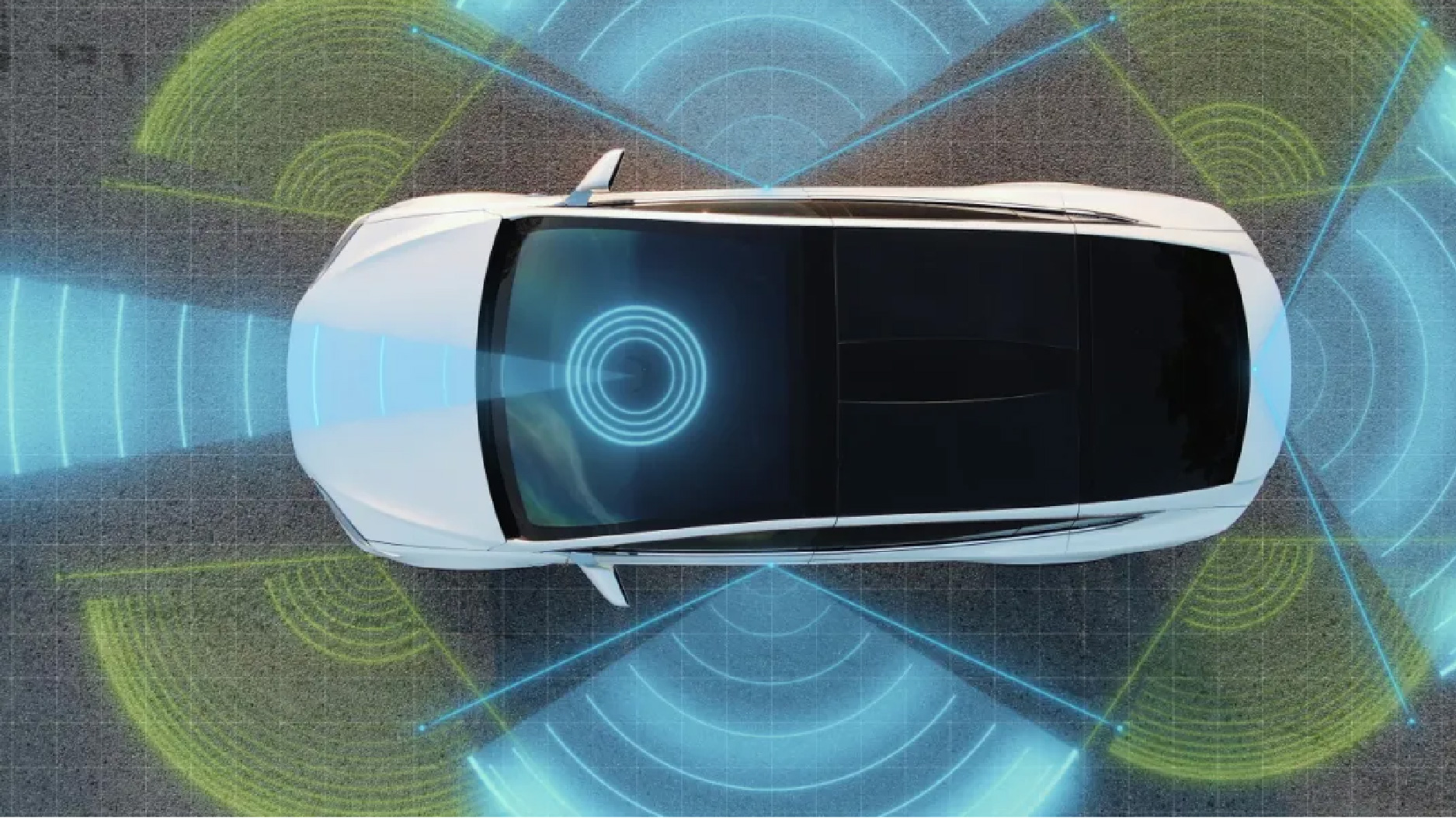Xiaomi‘s new car, the SU7 Ultra, became very popular after its release, sparking widespread discussions about its marketing strategy.
The car‘s sales exceeded 6,900 units in 10 minutes, completed the annual target in 2 hours, and exceeded 15,000 units in just 1 day. Some say the reason behind this success is because its pricing is lower than similar luxury cars, while others attribute it to the rise of artificial intelligence technology in China since the beginning of this year, leading to increased consumer expectations for smart driving.

|
Screenshot from ©Xiaomi official video |
What is the deeper marketing logic behind this? How will this event impact competition in Chinas new energy vehicle market in 2025?
Professor WANG Xiaoyi, Assistant Dean of the School of Management at Zhejiang University and Deputy Director of the Neuromanagement Laboratory, said in an interview with the National Business Daily that Xiaomi has redefined the concept of "luxury cars" through price adjustments. The competition among luxury car brands in 2025 will not only involve products but also the influence within the embodied intelligent ecosystem. He believes that the new trend of embodied intelligent marketing, exemplified by intelligent driving marketing, has already begun to emerge.
|
WANG Xiaoyi | 王小毅 School of Management, Zhejiang University |
||
|
|
||
|
|
|
Academic Background: WANG Xiaoyi is a professor and doctoral supervisor at the Department of Marketing, School of Management, Zhejiang University. He is also the Assistant Dean of the School of Management and Deputy Director of the Neuromanagement Laboratory at Zhejiang University. His research areas include brain-computer intelligence, consumer neuroscience, and innovations in new consumption and circulation. You can learn more about Prof. WANG Xiaoyi’s academic background here |
|
Xiaomi SU7 Ultras Sudden Price Cut Is Not About "Cheap" |
On the evening of February 27, the Xiaomi 15 Ultra and Xiaomi SU7 Ultra launch conference was held in Beijing. The Xiaomi SU7 Ultra standard version was priced at 529,900 CNY, significantly reduced from its pre-sale price of 814,900 CNY by 285,000.
Regarding the reason for the price reduction, LEI Jun stated at the press conference, "Our mission is to allow more people who like us to afford our products, even luxury cars."
According to WANG Xiaoyi, this price reduction has a deeper marketing logic. Xiaomi set a high value anchor through the pre-sale price (814,900 CNY) and significantly lowered the actual selling price (529,900 CNY). Essentially, Xiaomi employed the "hook effect" to reshape consumers perception of product value.
|
“ |
This strategy isnt just to create a cheap feeling, but to signal that the brand is actively making concessions through a significant price reduction, avoiding direct competition with traditional luxury brands. The rapid achievement of the annual target within 2 hours validates its effectiveness," WANG Xiaoyi said. |

|
Screenshot from ©Xiaomi official video |
At the press conference, LEI Jun compared Xiaomi SU7 Ultras parameters with luxury models like Porsche Taycan Turbo GT, stating: "Performance comparable to Porsche, technology close to Tesla, and luxury similar to BBA (Mercedes-Benz, BMW, Audi), redefining the standard of luxury cars."
According to Porsches official website, the Taycan Turbo GT starts at 1.998 million CNY, nearly four times the starting price of Xiaomi SU7 Ultra. From Ideal L9 (starting at 409,800 CNY), dubbed "the strongest SUV under 5 million CNY," to Zunjie S800 (priced between 1 million to 1.5 million CNY), comparable to Maybach S680, price is increasingly becoming a competitive advantage for luxury new energy vehicles.
WANG Xiaoyi argues that Xiaomi redefined "luxury cars" through pricing, focusing on "performance and intelligence" rather than brand premiums. This targets the psychological accounts of BBA "56E" car owners (500,000 CNY consumption range), satisfying consumer identity aspirations and lowering decision-making thresholds.
|
Smart Driving Equal Rights Will Be Central to New Energy Vehicle Competition in 2025 |
|
“ |
The popularity of Xiaomi SU7 Ultra stems not only from its significant price cut but also from satisfying consumers desire for high-end smart driving at affordable prices through smart driving equal rights," WANG Xiaoyi further analyzed. |
Observing this years automotive market reveals that many new energy vehicle companies actively invest in intelligent driving, seeking new competitive advantages through "smart driving equality."

|
Image source: ©千库网 |
For instance, BYD launched its high-end intelligent driving system "Eye of God" on February 10, covering vehicles priced below 100,000 CNY. Ideal Auto plans to introduce an upgraded intelligent driving system in May for its Ideal L series and Ideal MEGA models. On February 25, Tesla China released software enabling Autopilot-assisted driving on urban roads. At the Xiaomi launch, LEI Jun stated, "Our goal this year is simple—to firmly establish ourselves in the leading group of intelligent driving."
WANG Xiaoyi emphasizes that automakers accelerated focus on intelligent driving indicates a shift from electrification to intelligence, elevating intelligent driving from a differentiation strategy to a critical brand defense.
|
Impact on the 2025 Competition in Chinas EV Market |
WANG Xiaoyi identifies three key trends:
01 | First, technological equality will become more evident. High-level intelligent driving (L2.5 and above) is expected to exceed a 20% penetration rate by 2025, expanding from luxury models to broader price segments.
02 | Second, brand value is evolving. Intelligent driving capabilities increasingly symbolize brands technological strength, prompting automakers to transform into technology providers.
03 | Third, the competitive landscape will shift significantly. Choices in technology pathways (such as Teslas pure vision approach or Xiaomis end-to-end architecture) will shape industry standards.

|
Image source: ©千库网 |
|
A New Trend of Embodied Intelligent Marketing Is Emerging |
|
“ |
As luxury new energy vehicle brands gain superior price advantages and smart driving equality, embodied intelligent marketing is emerging as a new trend," WANG Xiaoyi explains. |
Drawing from his extensive research, WANG describes embodied intelligence as the deep integration of intelligent technology and physical environments, with intelligent driving exemplifying this concept. Intelligent driving marketing reflects this new marketing trend.
Specifically, product-embodied intelligence transforms intelligent driving systems from single functions to immersive experiences, such as Xiaomi SU7 Ultras "end-to-end, full-scenario" capability, enhancing user satisfaction and brand recognition. Scene-embodied intelligence integrates intelligent driving systems with external environments (e.g., smart homes and offices), creating a cohesive "people-car-home" ecosystem.
According to WANG Xiaoyi, embodied intelligent marketing leverages emotional connections, scenario-based approaches, and data-driven strategies, turning technological advantages into perceivable user value, thereby enhancing brand loyalty and marketing efficiency.

|
Image source: ©千库网 |
|
“ |
Xiaomi‘s pricing strategy and smart driving initiatives reflect the deeper logic of the market transition from electrification to embodied intelligence. The luxury vehicle market in 2025 will compete not only on products but also for influence within the embodied intelligence ecosystem," WANG Xiaoyi concludes. |
- With the rapid advancement of digital economies and artificial intelligence technology, Hangzhou has emerged as a leading city for the development of embodied intelligence. Zhejiang University School of Management, rooted in Hangzhou, has actively contributed to this transformation. We thank Professor WANG Xiaoyi for sharing his insights on embodied intelligent marketing. His observations help clarify the strategies behind Xiaomi SU7 Ultra’s success and their broader market implications.
- You can read the original article in Chinese here